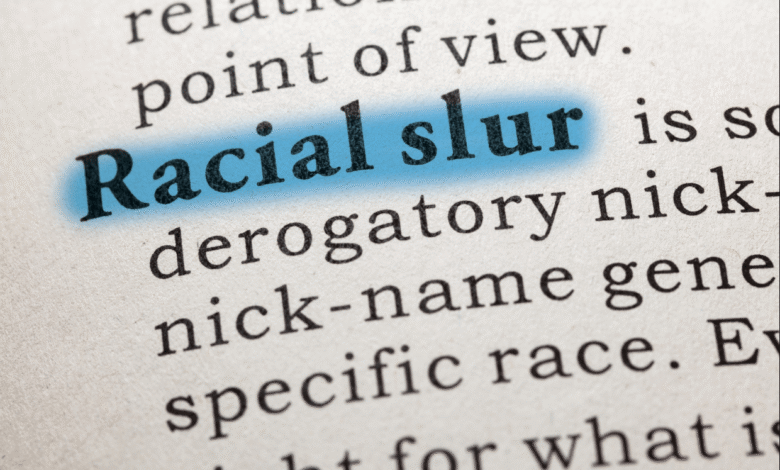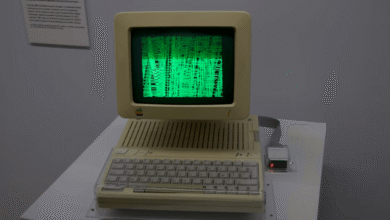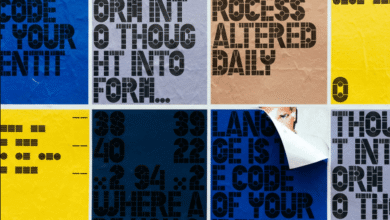Racial Slurs Origins, Impact, and Social Consequences

Racial slurs are derogatory or insulting words or expressions used to demean individuals based on their race, ethnicity, or national origin. While often dismissed as “just words,” their impact goes far beyond hurt feelings. Racial slurs are powerful tools of oppression that reinforce harmful stereotypes, perpetuate social divisions, and legitimize discrimination. Whether used in everyday conversation, online discourse, or mass media, these slurs serve as verbal reminders of deeply rooted societal inequalities.
In recent years, discussions around racism and hate speech have intensified, with public figures like Ryan Garcia facing backlash over the use or exposure of racial slur. The internet has amplified both the spread and condemnation of such language, making it essential to understand where racial slurs come from, why they are harmful, and how they are used across different communities—including against white people and Mexicans. This article will explore the list of racial slurs, their historical roots, the psychological and societal damage they cause, and why confronting them is necessary in the fight for equality.
A Brief History of Racial Slurs and Their Evolution
The origins of racial slurs can be traced back centuries, embedded in the history of colonization, slavery, and systemic discrimination. These words were often coined or weaponized by dominant groups to dehumanize others, thereby justifying exploitation or exclusion. Over time, many slurs became normalized through pop culture, literature, and institutional language, often without public acknowledgment of their insidious nature.
For instance, slurs used against African Americans have roots in the era of slavery and segregation in the United States, where language served as a key mechanism of control. Meanwhile, other slurs emerged during waves of immigration and conflict, reflecting xenophobic fears and nationalistic sentiments. In every instance, the intent was the same: to reduce a person’s identity to a stereotype and deny them full humanity.
List of Racial Slurs: A Dangerous Lexicon of Hate
When exploring the list of racial slurs, it becomes evident how deeply language can cut. Each slur carries specific connotations and histories tied to violence, marginalization, or forced exclusion. For example, terms directed at Black, Asian, Jewish, Indigenous, or Middle Eastern individuals often originated in colonial or wartime contexts and were passed down through generations of bigotry.
It is important to note that including a list of racial slurs here is not to perpetuate their use, but to recognize their existence and highlight the importance of calling them out. These words are not harmless jokes—they are symptoms of a broader societal illness. Many racial slurs have been reclaimed by the communities they were meant to hurt, yet their use remains deeply controversial even within those groups. Context, speaker, and intent all matter, but the underlying harm often remains.
Racial Slurs for White People: Reverse Racism or Social Commentary?
The discussion around racial slurs for white people is complex. While some terms used against white individuals—such as “cracker” or “honky”—are indeed derogatory, they historically lack the institutional power and violence that accompany slurs used against marginalized communities. Critics argue that these slurs do not carry the same weight, while others insist that any form of racial labeling contributes to division and harm.
What distinguishes many white racial slurs from others is the lack of historical disenfranchisement. However, that doesn’t make them acceptable. Words used to stereotype or demean people based on their skin color or ethnic background—regardless of the group—contribute to a toxic racial climate. The goal of anti-racist advocacy should be the elimination of all racial slur, not just those targeting minorities.
Mexican Racial Slurs: Deep-Rooted Stereotypes and Border Politics
Slurs directed at Mexicans and those of Latin American heritage have long been used to marginalize and stereotype entire communities. Mexican racial slurs often revolve around classist, xenophobic, and nationalist tropes, reducing complex identities to simplified and insulting caricatures. Whether used in media, politics, or everyday speech, these slurs feed into a larger narrative of exclusion, especially in countries where immigration is a heated issue.
Terms used to insult Mexicans are not just casual insults—they are often tied to racist ideologies that associate Latin Americans with crime, poverty, or illegitimacy. The rise in anti-immigrant rhetoric in the United States, for example, has reignited the use of these slurs, contributing to hate crimes and discriminatory policies. Addressing racial slurs for Mexicans is not just about language—it’s about dismantling the harmful systems they support.
Ryan Garcia and the Modern Reckoning with Racial Slurs
In the era of social media, celebrities and influencers face increased scrutiny over their words and actions. Ryan Garcia, a high-profile boxer, found himself at the center of controversy involving racial slur—either through use or association. His situation exemplifies how public figures are expected to be more mindful of their language and the impact it can have on fans and society at large.
The backlash Garcia faced serves as a reminder that no one is above accountability. When someone with a massive platform uses or tolerates racial slurs, it normalizes harmful behavior. More importantly, it undermines the efforts of communities fighting for recognition and respect. Whether intentional or not, the consequences are real and lasting.
Psychological Impact of Racial Slurs on Victims
The emotional and mental damage caused by racial slurs cannot be understated. Victims often report feelings of shame, humiliation, anger, and fear. Repeated exposure to such language contributes to chronic stress and a diminished sense of self-worth. For children and young adults, racial slurs can shape their understanding of the world and their place in it—often negatively.
Studies have shown that exposure to hate speech can lead to long-term psychological consequences, including anxiety, depression, and social withdrawal. When racial slurs become normalized in schools, workplaces, or public discourse, they perpetuate environments of hostility and exclusion. These impacts highlight why dismissing racial slur as “just words” is both ignorant and dangerous.
The Role of Media in Spreading or Combating Racial Slurs
Media plays a pivotal role in either amplifying or challenging racial slurs. Television, music, movies, and online platforms have long been battlegrounds where language is shaped and spread. While some creators use slurs to highlight social issues or depict realism, others exploit them for shock value or comedic effect, often at the expense of marginalized communities.
Responsible media representation involves not only avoiding harmful language but also addressing its use within historical and cultural contexts. The entertainment industry, for example, has started to respond more swiftly to backlash, removing or editing content that includes racial slurs. However, the balance between censorship and education remains delicate.
Legal Protections and Hate Speech Laws
In many countries, the use of racial slurs can fall under hate speech legislation. These laws aim to prevent language that incites violence or discrimination based on race, ethnicity, religion, or nationality. However, enforcement varies widely, and the line between free speech and hate speech remains controversial.
For example, in the UK, racial slur can lead to criminal charges if deemed threatening or abusive. In the United States, the First Amendment provides broader protections, making legal consequences for hate speech rare. Still, organizations, employers, and social platforms often have their own policies to penalize discriminatory language.
How Society Can Move Forward
Eradicating the use of racial slurs requires collective effort. Education, open dialogue, and cultural sensitivity training are essential tools in changing attitudes. Schools must teach the history of racism and the power of language from an early age. Workplaces should have clear anti-discrimination policies, and individuals must hold themselves accountable for their words.
Social media platforms also bear responsibility. By flagging and removing hate speech, promoting diverse voices, and enforcing community guidelines, they can help create safer digital spaces. But perhaps most importantly, individuals must speak up when they witness racism—whether it’s a slur muttered under breath or shouted in a public square.
Conclusion: Words Reflect the World We Build
Racial slurs are not relics of the past—they are part of a living legacy of hate and exclusion. Whether targeting Black people, Mexicans, or even white individuals, slurs continue to shape societal dynamics and perpetuate inequality. Understanding their origins and impact is the first step toward creating a more respectful and inclusive society.
By challenging the use of racial slurs and recognizing their power, we affirm the dignity of every human being. In a world increasingly connected through technology and global dialogue, our words must reflect the values we strive for: equality, justice, and respect.
Frequently Asked Questions (FAQs)
Q1: What are racial slurs?
A: Racial slurs are derogatory terms used to insult or demean people based on their race or ethnicity.
Q2: Why are racial slurs harmful?
A: They reinforce stereotypes, cause emotional harm, and contribute to systemic racism and exclusion.
Q3: What is the impact of using slurs against white people?
A: While offensive, slurs against white individuals often lack the institutional history of oppression, though they still contribute to division.
Q4: Are there laws against using racial slur?
A: In some countries, racial slur may be considered hate speech, but legal consequences vary by region.
Q5: How can I report hate speech online?
A: Most platforms offer reporting tools; you can flag harmful content or contact site moderators directly.




